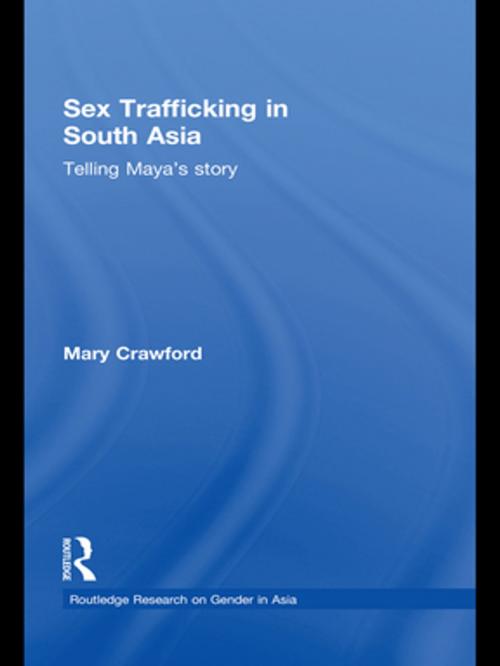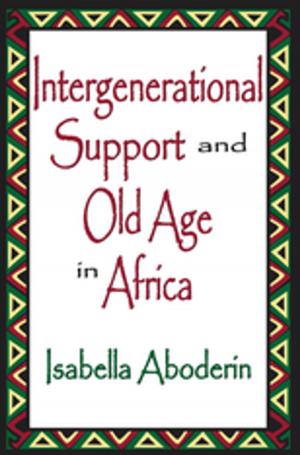Sex Trafficking in South Asia
Telling Maya's Story
Nonfiction, Social & Cultural Studies, Social Science, Gender Studies, Feminism & Feminist Theory, Cultural Studies, Ethnic Studies, Political Science| Author: | Mary Crawford | ISBN: | 9781135182502 |
| Publisher: | Taylor and Francis | Publication: | January 21, 2010 |
| Imprint: | Routledge | Language: | English |
| Author: | Mary Crawford |
| ISBN: | 9781135182502 |
| Publisher: | Taylor and Francis |
| Publication: | January 21, 2010 |
| Imprint: | Routledge |
| Language: | English |
This book is a critical feminist analysis of sex trafficking. Arguing that trafficking in girls and women is a product of the social construction of gender and other dimensions of power and status within a particular culture and at a particular historical moment, this book offers the necessary locally grounded analysis.
Focusing on the case of Nepal, from where 5,000 to 7,000 thousands of Nepali girls and women are trafficked each year primarily to India, Mary Crawford assesses how the social construction of trafficking - the concept and its representation in discourse - are influenced by the dynamics of gender, caste, and the development establishment. The defining figure is an innocent, naïve young girl being lured or duped into leaving the safety of her village. The trafficking victim is portrayed as "backward"; however, she is "backward" in specific ways that resonate with Nepal’s struggle to resist and yet encompass Western influence. This view may lead to paradoxical effects in which efforts to protect girls and women instead restrict their human rights. Rather than seeing women as universalized victims, Crawford assesses how the social construction of trafficking in a particular society affects girls and women who live in that society.
In this book, the author’s voice as a woman, a feminist, and a social scientist immersed in a "foreign" way of life, illuminates aspects of this process and highlights the subjectivity of urban women. It makes the connection between Nepali subjectivities and a problem of international significance, the trafficking of girls and women. The book provides a model for other locally grounded accounts of sex trafficking to counter the universalizing rhetoric of the mass media and some anti-trafficking activists, filling a niche in South Asian Studies and Women’s Studies.
This book is a critical feminist analysis of sex trafficking. Arguing that trafficking in girls and women is a product of the social construction of gender and other dimensions of power and status within a particular culture and at a particular historical moment, this book offers the necessary locally grounded analysis.
Focusing on the case of Nepal, from where 5,000 to 7,000 thousands of Nepali girls and women are trafficked each year primarily to India, Mary Crawford assesses how the social construction of trafficking - the concept and its representation in discourse - are influenced by the dynamics of gender, caste, and the development establishment. The defining figure is an innocent, naïve young girl being lured or duped into leaving the safety of her village. The trafficking victim is portrayed as "backward"; however, she is "backward" in specific ways that resonate with Nepal’s struggle to resist and yet encompass Western influence. This view may lead to paradoxical effects in which efforts to protect girls and women instead restrict their human rights. Rather than seeing women as universalized victims, Crawford assesses how the social construction of trafficking in a particular society affects girls and women who live in that society.
In this book, the author’s voice as a woman, a feminist, and a social scientist immersed in a "foreign" way of life, illuminates aspects of this process and highlights the subjectivity of urban women. It makes the connection between Nepali subjectivities and a problem of international significance, the trafficking of girls and women. The book provides a model for other locally grounded accounts of sex trafficking to counter the universalizing rhetoric of the mass media and some anti-trafficking activists, filling a niche in South Asian Studies and Women’s Studies.















